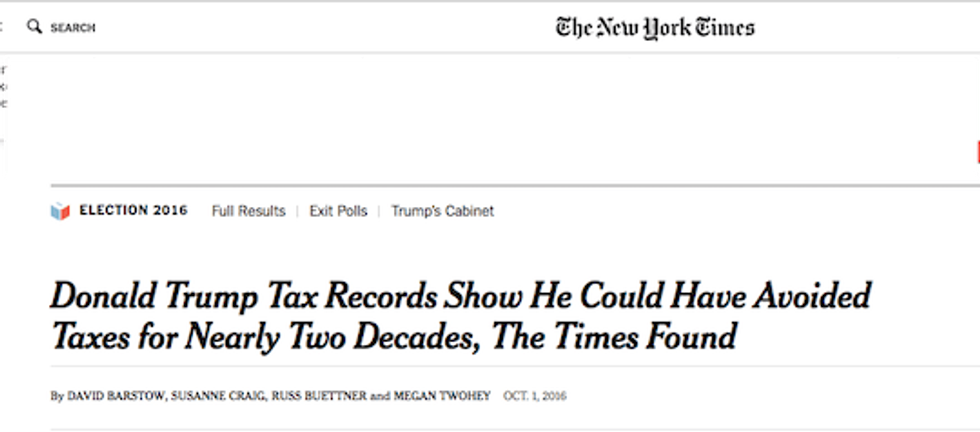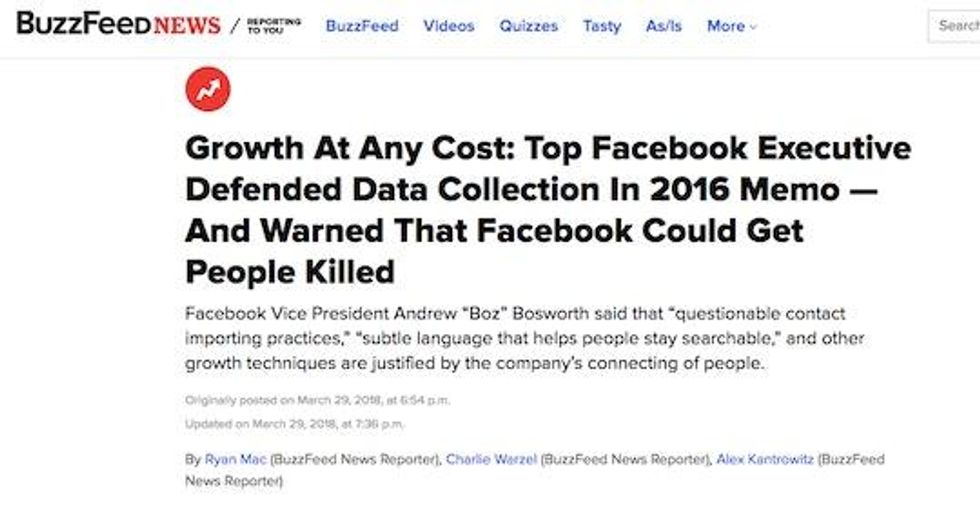

SUBSCRIBE TO OUR FREE NEWSLETTER
Daily news & progressive opinion—funded by the people, not the corporations—delivered straight to your inbox.
5
#000000
#FFFFFF
To donate by check, phone, or other method, see our More Ways to Give page.


Daily news & progressive opinion—funded by the people, not the corporations—delivered straight to your inbox.

Emails of John Podesta, chair of Hillary Clinton's 2016 presidential campaign, were given to Wikileaks which then published them in a series of releases during the general election against Donald Trump. (Photo: Andrew Harnik/AP)
The Democratic National Committee (DNC) filed a lawsuit Friday afternoon in a Manhattan federal court against the Russian Government, the Trump campaign and various individuals it alleges participated in the plot to hack its email servers and disseminate the contents as part of the 2016 election. The DNC also sued WikiLeaks for its role in publishing the hacked materials, though it does not allege that WikiLeaks participated in the hacking or even knew in advance about it; its sole role, according to the DNC's lawsuit, was publishing the hacked emails.
The DNC's suit, as it pertains to WikiLeaks, poses a grave threat to press freedom. The theory of the suit - that WikiLeaks is liable for damages it caused when it "willfully and intentionally disclosed" the DNC's communications (paragraph 183) - would mean that any media outlet that publishes misappropriated documents or emails (exactly what media outlets quite often do) could be sued by the entity or person about which they are reporting, or even theoretically prosecuted for it, or that any media outlet releasing an internal campaign memo is guilty of "economic espionage" (paragraph 170):


It is extremely common for media outlets to publish or report on materials that are stolen, hacked, or otherwise obtained in violation of the law. In October, 2016 - one month before the election - someone mailed a copy of Donald Trump's 1995 tax returns to the New York Times, which published parts of it even though it is illegal to disclose someone's tax returns without the taxpayer's permission; in March, 2017, MSNBC's Rachel Maddow did the same thing with Trump's 2005 tax returns.

In April, 2016, the Washington Post obtained and published a confidential internal memo from the Trump campaign. Media outlets constantly publish private companies' internal documents. Just three weeks ago, BuzzFeed obtained and published a secret Facebook memo outlining the company's internal business strategies, the contents of which were covered by most major media outlets.

Some of the most important stories in contemporary journalism have come from media outlets obtaining and publishing materials that were taken without authorization or even in violation of the law. Both the New York Times and Washington Post published thousands of pages from the top secret Pentagon Papers after Daniel Ellsberg took them without authorization from the Pentagon - and they won the right to publish them in the U.S. Supreme Court.
Read the full article, with possible updates, at The Intercept.
Dear Common Dreams reader, The U.S. is on a fast track to authoritarianism like nothing I've ever seen. Meanwhile, corporate news outlets are utterly capitulating to Trump, twisting their coverage to avoid drawing his ire while lining up to stuff cash in his pockets. That's why I believe that Common Dreams is doing the best and most consequential reporting that we've ever done. Our small but mighty team is a progressive reporting powerhouse, covering the news every day that the corporate media never will. Our mission has always been simple: To inform. To inspire. And to ignite change for the common good. Now here's the key piece that I want all our readers to understand: None of this would be possible without your financial support. That's not just some fundraising cliche. It's the absolute and literal truth. We don't accept corporate advertising and never will. We don't have a paywall because we don't think people should be blocked from critical news based on their ability to pay. Everything we do is funded by the donations of readers like you. Will you donate now to help power the nonprofit, independent reporting of Common Dreams? Thank you for being a vital member of our community. Together, we can keep independent journalism alive when it’s needed most. - Craig Brown, Co-founder |
The Democratic National Committee (DNC) filed a lawsuit Friday afternoon in a Manhattan federal court against the Russian Government, the Trump campaign and various individuals it alleges participated in the plot to hack its email servers and disseminate the contents as part of the 2016 election. The DNC also sued WikiLeaks for its role in publishing the hacked materials, though it does not allege that WikiLeaks participated in the hacking or even knew in advance about it; its sole role, according to the DNC's lawsuit, was publishing the hacked emails.
The DNC's suit, as it pertains to WikiLeaks, poses a grave threat to press freedom. The theory of the suit - that WikiLeaks is liable for damages it caused when it "willfully and intentionally disclosed" the DNC's communications (paragraph 183) - would mean that any media outlet that publishes misappropriated documents or emails (exactly what media outlets quite often do) could be sued by the entity or person about which they are reporting, or even theoretically prosecuted for it, or that any media outlet releasing an internal campaign memo is guilty of "economic espionage" (paragraph 170):


It is extremely common for media outlets to publish or report on materials that are stolen, hacked, or otherwise obtained in violation of the law. In October, 2016 - one month before the election - someone mailed a copy of Donald Trump's 1995 tax returns to the New York Times, which published parts of it even though it is illegal to disclose someone's tax returns without the taxpayer's permission; in March, 2017, MSNBC's Rachel Maddow did the same thing with Trump's 2005 tax returns.

In April, 2016, the Washington Post obtained and published a confidential internal memo from the Trump campaign. Media outlets constantly publish private companies' internal documents. Just three weeks ago, BuzzFeed obtained and published a secret Facebook memo outlining the company's internal business strategies, the contents of which were covered by most major media outlets.

Some of the most important stories in contemporary journalism have come from media outlets obtaining and publishing materials that were taken without authorization or even in violation of the law. Both the New York Times and Washington Post published thousands of pages from the top secret Pentagon Papers after Daniel Ellsberg took them without authorization from the Pentagon - and they won the right to publish them in the U.S. Supreme Court.
Read the full article, with possible updates, at The Intercept.
The Democratic National Committee (DNC) filed a lawsuit Friday afternoon in a Manhattan federal court against the Russian Government, the Trump campaign and various individuals it alleges participated in the plot to hack its email servers and disseminate the contents as part of the 2016 election. The DNC also sued WikiLeaks for its role in publishing the hacked materials, though it does not allege that WikiLeaks participated in the hacking or even knew in advance about it; its sole role, according to the DNC's lawsuit, was publishing the hacked emails.
The DNC's suit, as it pertains to WikiLeaks, poses a grave threat to press freedom. The theory of the suit - that WikiLeaks is liable for damages it caused when it "willfully and intentionally disclosed" the DNC's communications (paragraph 183) - would mean that any media outlet that publishes misappropriated documents or emails (exactly what media outlets quite often do) could be sued by the entity or person about which they are reporting, or even theoretically prosecuted for it, or that any media outlet releasing an internal campaign memo is guilty of "economic espionage" (paragraph 170):


It is extremely common for media outlets to publish or report on materials that are stolen, hacked, or otherwise obtained in violation of the law. In October, 2016 - one month before the election - someone mailed a copy of Donald Trump's 1995 tax returns to the New York Times, which published parts of it even though it is illegal to disclose someone's tax returns without the taxpayer's permission; in March, 2017, MSNBC's Rachel Maddow did the same thing with Trump's 2005 tax returns.

In April, 2016, the Washington Post obtained and published a confidential internal memo from the Trump campaign. Media outlets constantly publish private companies' internal documents. Just three weeks ago, BuzzFeed obtained and published a secret Facebook memo outlining the company's internal business strategies, the contents of which were covered by most major media outlets.

Some of the most important stories in contemporary journalism have come from media outlets obtaining and publishing materials that were taken without authorization or even in violation of the law. Both the New York Times and Washington Post published thousands of pages from the top secret Pentagon Papers after Daniel Ellsberg took them without authorization from the Pentagon - and they won the right to publish them in the U.S. Supreme Court.
Read the full article, with possible updates, at The Intercept.